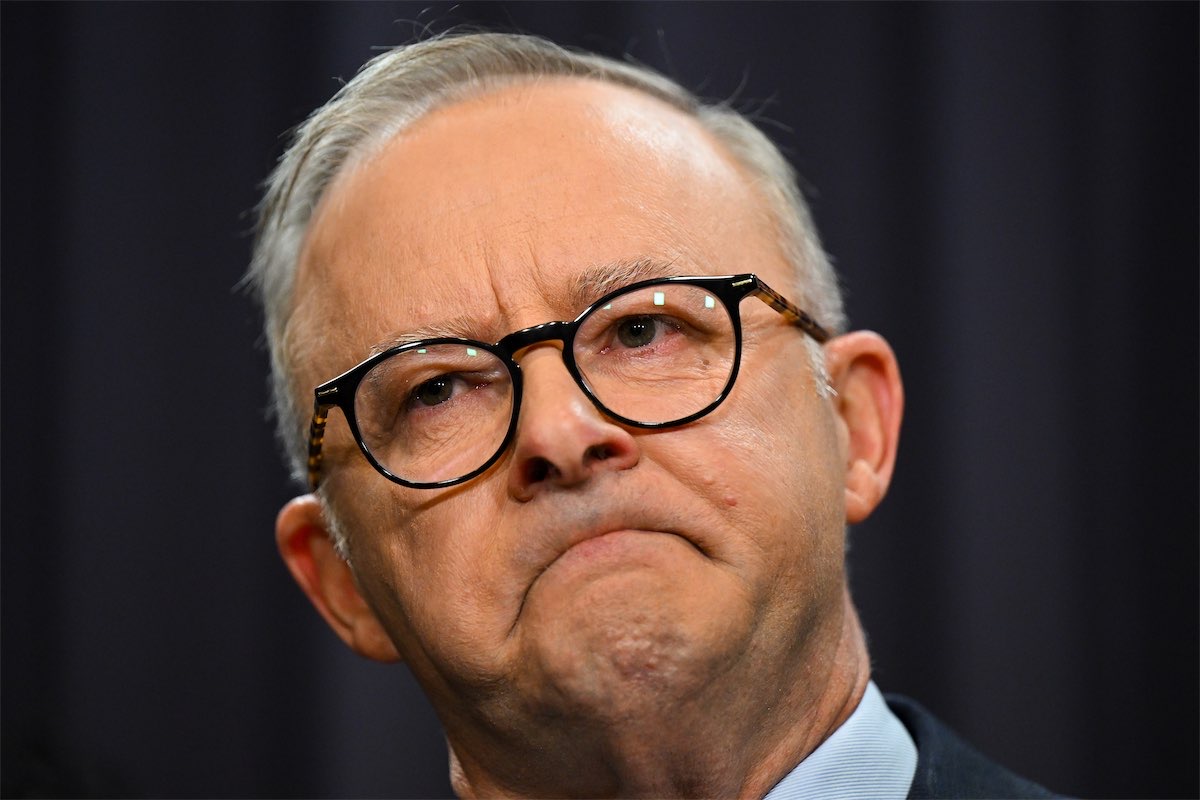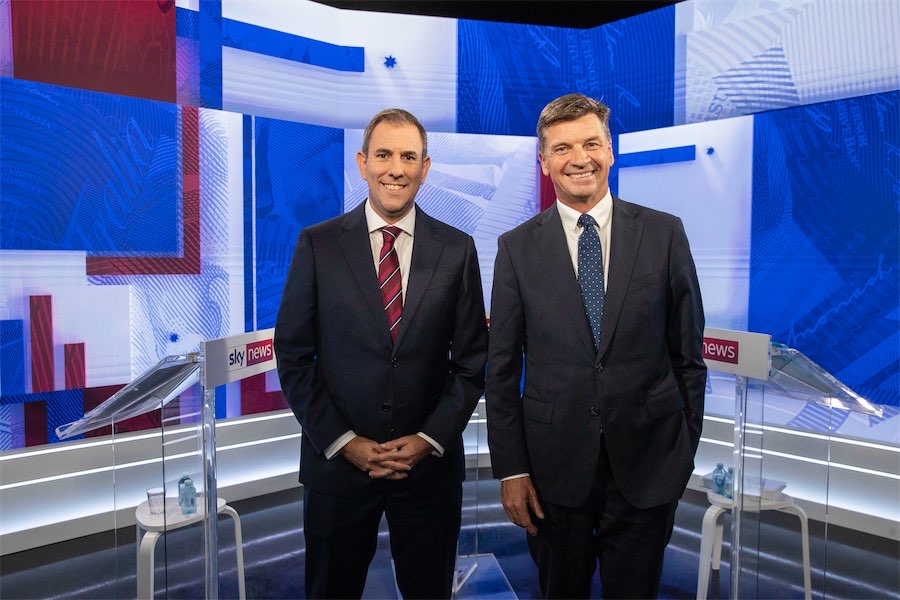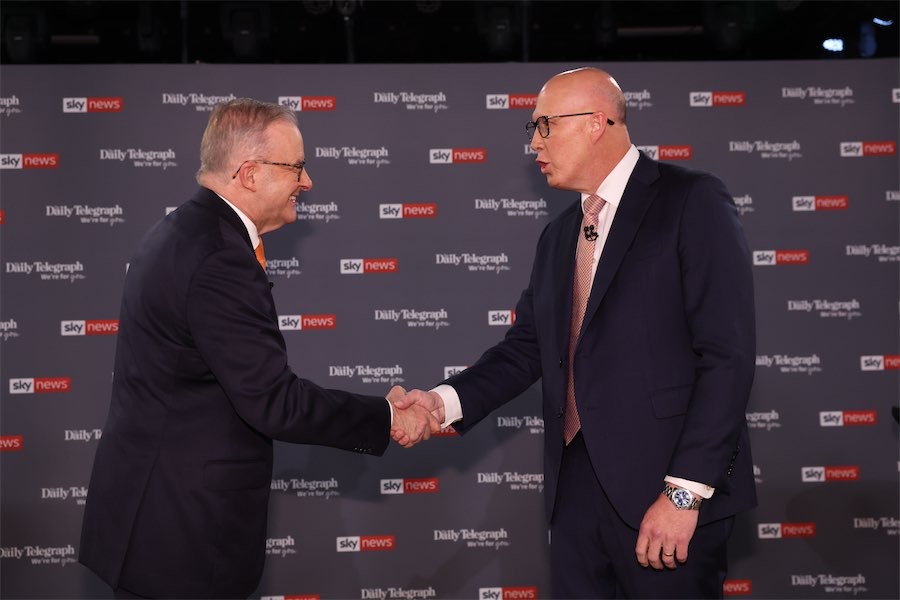
‘We’re all in’, declares an emotional Albanese as he launches the wording for the Voice referendum, reports political columnist MICHELLE GRATTAN.
AN emotional Anthony Albanese, flanked by members of the referendum working group, has released the final proposed wording of the question to be put to Australians to incorporate an indigenous Voice to parliament in the constitution.
Despite pressure from conservative lawyers to build in stronger protections against legal challenges under a future Voice, in particular in relation to its interaction with the public service, only tweaking has been undertaken to the original wording released by the prime minister at the Garma festival last year.
The question of potential legal challenge is contested by constitutional experts, with some strongly arguing there is no problem.
In a simply worded question, Australians will be asked to approve altering the constitution “to recognise the First Peoples of Australia by establishing an Aboriginal and Torres Strait Islander Voice”.
The change would be inserted into the constitution’s Chapter IX, a new section reading:
In recognition of Aboriginal and Torres Strait Islander peoples as the First Peoples of Australia
There shall be a body, to be called the Aboriginal and Torres Strait Islander Voice
The Aboriginal and Torres Strait Islander Voice may make representations to the Parliament and the Executive Government of the Commonwealth on matters relating to Aboriginal and Torres Strait Islander peoples
The Parliament shall, subject to this Constitution, have power to make laws with respect to matters relating to the Aboriginal and Torres Strait Islander Voice, including its composition, functions, powers and procedures
Albanese’s original wording was:
There shall be a body, to be called the Aboriginal and Torres Strait Islander Voice
The Aboriginal and Torres Strait Islander Voice may make representations to Parliament and the Executive government on matters relating to Aboriginal and Torres Strait Islander Peoples
The Parliament shall, subject to this Constitution, have power to make laws with respect to the composition, functions, powers and procedures of the Aboriginal and Torres Strait Islander Voice
The new version has made it clear, as was always intended, that the Voice would advise only the Commonwealth, not the states.
More significantly, the government has reworded the section about parliament’s power, although it has not taken up a proposal from Attorney-General Mark Dreyfus, after advice from the solicitor-general, to add specific wording that parliament could legislate on “the legal effect of its representations”.
This ran into resistance among the referendum working group, which feared the potential to water down the Voice’s power.
Appearing at the Albanese news conference, Dreyfus said: “The process has worked exactly as it should be. I’m proud to be part of it. We have words here that put beyond doubt the power of the Australian parliament to legislate on the broad scope of the functions, powers, of the Voice to parliament.”
Opposition leader Peter Dutton called for the government to release the solicitor-general’s advice. “In the absence of that advice, and in the absence of detail from the prime minister, how can the Australian public make an informed judgement about a very, very important issue?”
The Liberals have not stated a final position on the Voice. They supported the legislation, passed on Wednesday, for updating the referendum machinery arrangements. The Nationals oppose the Voice.
Conservative constitutional lawyer Greg Craven, a supporter of a Voice, criticised the failure to take up Dreyfus’s suggested change. “That in a sense is a defeat of hopes for some sort of compromise,” he said on Melbourne radio.
“The problem is executive government covers the whole of the decision-making of the Commonwealth government… Now, if you get into a situation where, for example, the Voice hasn’t yet made a representation on some important view and the Commonwealth has not told the Voice and given it that chance, then legally it is entirely practicable for someone to take a challenge to a court to stop that action until the Voice has made representation,” Craven said.
Among those on the platform with Albanese was Ken Wyatt, former minister for Indigenous Australians in the Morrison government.
Like the prime minister, several of the indigenous leaders present were also emotional during the news conference.
Albanese will introduce legislation for the referendum question next week. It will then go to a parliamentary committee, with the government aiming to have it passed in June.
The prime minister indicated he was unlikely to be open to changes to the wording, although the Senate could force alterations.
Thursday’s announcement followed a meeting between Albanese and the working group on Wednesday night and federal cabinet’s tick-off of the wording on Thursday morning.
Albanese insisted at the news conference the form of words was “legally sound”. A legal group advised the referendum working group.
The PM stressed the practical value of a Voice in closing the gap of indigenous disadvantage. While this was about recognition, he said, more importantly it was about “making a practical difference, which we have a responsibility to do”.
He urged Australians not to miss the “opportunity to take up the generous invitation of the Uluru Statement from the Heart”.
Albanese said there were no circumstances in which he would not put the referendum to a vote, because “to not put this to a vote is to concede defeat. You only win when you run on the field and engage. And let me tell you, my government is engaged. We’re all in.”![]()
Michelle Grattan, Professorial Fellow, University of Canberra. This article is republished from The Conversation.
Who can be trusted?
In a world of spin and confusion, there’s never been a more important time to support independent journalism in Canberra.
If you trust our work online and want to enforce the power of independent voices, I invite you to make a small contribution.
Every dollar of support is invested back into our journalism to help keep citynews.com.au strong and free.
Thank you,
Ian Meikle, editor







Leave a Reply